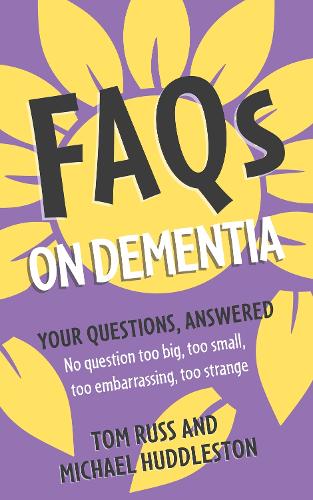
FAQs on Dementia
(Paperback)
Publishing Details
FAQs on Dementia
By (Author) Tom Russ
By (author) Michael Huddleston
John Murray Press
Sheldon Press
25th July 2023
27th April 2023
United Kingdom
Classifications
Tertiary Education
Non Fiction
Coping with / advice about Alzheimers and dementia
Care of the elderly
616.831
Physical Properties
Paperback
160
Width 134mm, Height 214mm, Spine 14mm
167g
Description
You left the doctor's surgery before you could ask the things you really wanted to know.
You've googled your question about dementia and had 75 answers, all contradicting each other.You asked your best friend - but they looked at you strangely.You have so many questions, but no idea where to start finding the answers. Here they are. In this book you'll find the definitive, expert responses to all your FAQs: On Dementia. No question is too simple, too embarrassing, too rude or too offbeat to be included, and each one has been asked by thousands of people just like you.Will my partner stop loving me now they have dementiaDoes my mum have to go into a home nowIs dementia a terminal illnessAll these questions, and hundreds more, are covered in this short but powerful, helpful, practical guide to understanding the nature, and impact, of dementia. Read at your leisure, or dip in and out when you most need the support or to shine a light on the issues and concerns that are making you uncomfortable or unhappy, and to bring them out of the shadows so you can understand and accept them.Author Bio
Tom Russ trained in medicine and psychiatry in Edinburgh, the Highlands, and London and completed a PhD in dementia epidemiology at the University of Edinburgh. He is a consultant psychiatrist in NHS Lothian, Network Champion of the NRS Neuroprogressive and Dementia Network, and Director of the Alzheimer Scotland Dementia Research Centre at the University of Edinburgh.
Michael Huddleston is Alzheimer Scotland's Dementia Advisor for Mid and East Lothian. He provides advice and information for people living with dementia and their families, and works closely with local Health and Social Care Partnerships to influence and shape dementia and carer-specific strategies and to accommodate the needs and views of people with lived experience.